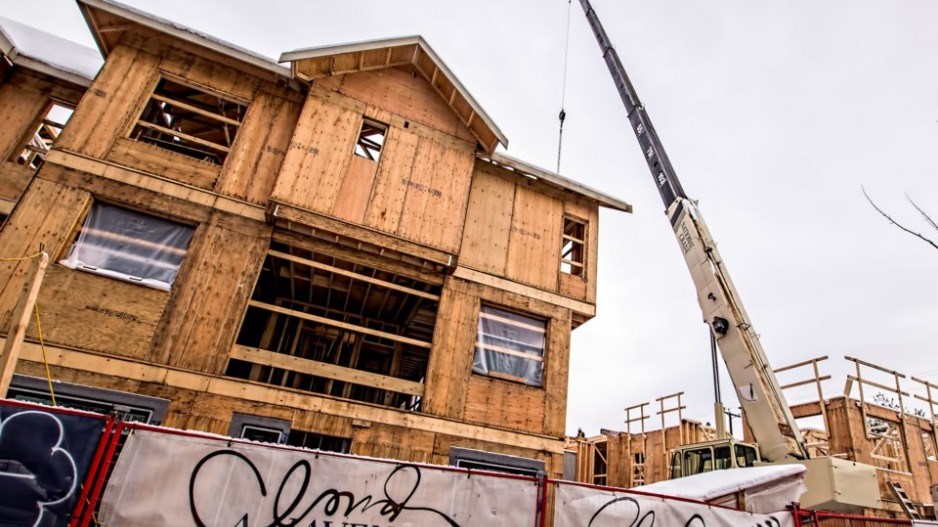The biggest hike yet in interest rates this year will complicate valuations for residential and investment properties and prevent builders from proceeding with projects.
The central bank’s policy rate is now 2.5 per cent, up a percentage point from the last announcement in May and 10 times what it was at the beginning of March.
“An increase of this magnitude at one meeting is very unusual. It reflects very unusual economic circumstances,” said Tiff Macklem, governor of the Bank of Canada, in making the announcement. “Things are not normal right now. After 30 years of low, stable inflation, many Canadians are experiencing the pain of high inflation – and the uncertainty that comes with it—for the first time.”
Macklem said the decision to raise rates rapidly was meant to “frontload” the pain rather than risk high inflation from becoming entrenched in the economy. The bank is targeting a 2 per cent inflation rate versus the 8 per cent currently reported.
Real estate and mortgage rates did not factor into the bank’s statements, but the direct and indirect effects will be significant.
“If you got a mortgage four or five years ago and you’re being reset in this environment, the Bank of Canada recently estimated that your payment’s probably 30 or 40 per cent higher,” said Brendon Ogmundson, chief economist with the B.C. Real Estate Association. “As households get reset at a much higher payment, it just leaves a lot less room for other spending.”
Ogmundson says mortgage rates have largely factored in a target rate of 3.5 per cent and sales have slowed accordingly. Residential sales were down 28 per cent province-wide in the first half of this year versus a year ago, totalling 51,202. Ogmundson expects a total of 85,000 and 90,000 by the end of the year.
“That’s really reflecting a really strong first half of the year. It’s going to be a pretty weak second half,” he said. “We’re heading for pretty slow activity over the next year.”
BCREA forecasts call for sales in the range of 70,000 next year, but much will depend on where interest rates head – how high, and how quickly.
“We’re on our way to being a 3.25 to 3.5 per cent rate sometime over the next year,” Ogmundson said of the Bank of Canada. “The big thing is how aggressive they’re going to be from here.”
The effects will also be felt in the development industry and by commercial real estate. Pricing for several residential projects was cresting fresh peaks this spring, and the new, higher cost of borrowing for both builders and buyers will push developers to pause projects.
Metro Vancouver condo apartment starts have declined by nearly 40 per cent this year compared to 2021, according to Canada Mortgage and Housing Corp.
In the first five months of 2022, 3,969 condo apartments broke ground, compared to 6,511 starts in 2021.
Higher interest rates combine with soaring construction costs to put some residential towers in questions.
“The market-driven condo landscape right now is challenging,” said Kindred Construction president Bryan Reid. “They’re all delayed. Nobody’s pushed ‘go’ on a project that was supposed to start for us this summer or fall.”
Several retail developments have also been paused, according to Colliers International, and builders of strata industrial projects say the urgency among buyers has cooled as they readjust to the higher cost of space.
“As central banks have increased interest rates, you layer that on with the price increases we’ve seen over the past couple of years and I think purchasers need to digest what the new costs look like,” said Jason Kiselbach, managing director with brokerage CBRE Ltd. in Vancouver.
Cap rates could also increase as buyers' expectations of return shift. This hasn't been seen to date, however. CBRE will be releasing its quarterly cap rate report next week, and is leaning towards holding cap rates steady until transactions prove otherwise.
Susan Thompson, associate research director with Colliers International in Vancouver, expects a clearer picture come fall.
"We expect there will be some pause in decision-making and project commencement as owners, purchasers, developers and tenants run their calculations on how this is going to impact costs and their ability to access capital," she said. "Deal activity getting over the finish line may slow for the next few months as prices adjust but will likely return in the fall as the market adapts to the change."




